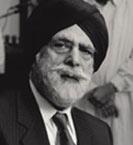A Grotesque Challenge to Sikh Teachings on Compassionate Care:
The British Medical Association (BMA), allied healthcare professionals and religious leaders are united in pressing for better palliative care for all. Sikh teachings emphasize the responsibility of society to care for the elderly and vulnerable, whilst making them feel loved and valued members of the community. As Sikhs we should remember the example of Guru Har Krishan, who put the care of victims of a smallpox epidemic in Delhi at greater importance than his own life. The importance of ‘assisted living’ and caring for those around us is central to Sikh teachings.
It is therefore a matter of real concern that Rob Marris MP, Chair of the All Party Parliamentary Group (APPG) for Sikhs, will be introducing legislation in Parliament in early September, that cuts across Sikh teachings on our collective responsibility to care for all members of society (sarbat ka bhalla), and instead assist vulnerable people to take their own lives. Marris, MP for Wolverhampton South West tabled a Private Members Bill ‘Assisted Dying (No.2)’ in June 2015. This follows on from a similar Bill introduced by Lord Falconer last year, which didn’t get past the third reading in the Lords. Some Peers expressed concerns about the ‘financial incentives’ involved in ending the lives of the terminally ill. The Bill was further described as a ‘breeding ground for vultures.’
Many see the dangers of depressed individuals at a low ebb surrounded by uncaring relatives, feeling morally pressurised to stop being a burden on others by seeking help to end their lives. Hundreds of letters received by Lord Singh from disabled people underline their fear and concern over the proposed legislation. In a debate on ‘assisted dying’ last year, Lord Singh said:
“In attempting to show compassion to a few, it neglects due compassion to many thousands of others. It has created immense fear in vulnerable people that they are being seen as a problem by society, with consequent damage to their sense of self-worth.”
Action Required
- All Sikhs should lobby the Chair of the APPG for Sikhs, Rob Marris (whose majority is only a few hundred) to withdraw his ill-considered and demeaning bill. The undeniable strength of the Sikh Federation on the APPG could be particularly helpful.
- All Sikhs should lobby other members of parliament not to support a Bill that cuts across our responsibility as human beings and the whole thrust of Sikh teachings to assist vulnerable people to live with dignity and good palliative care.



